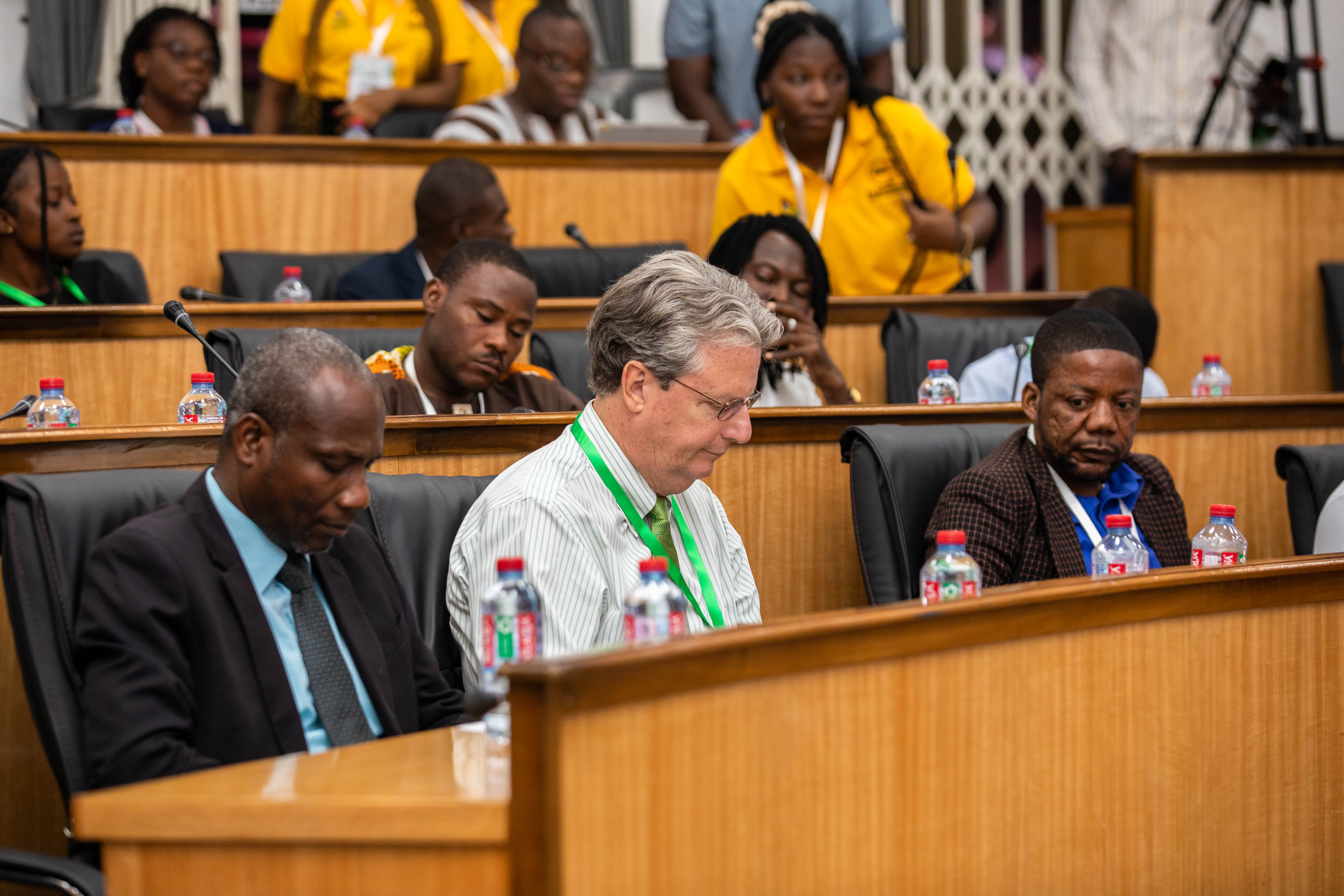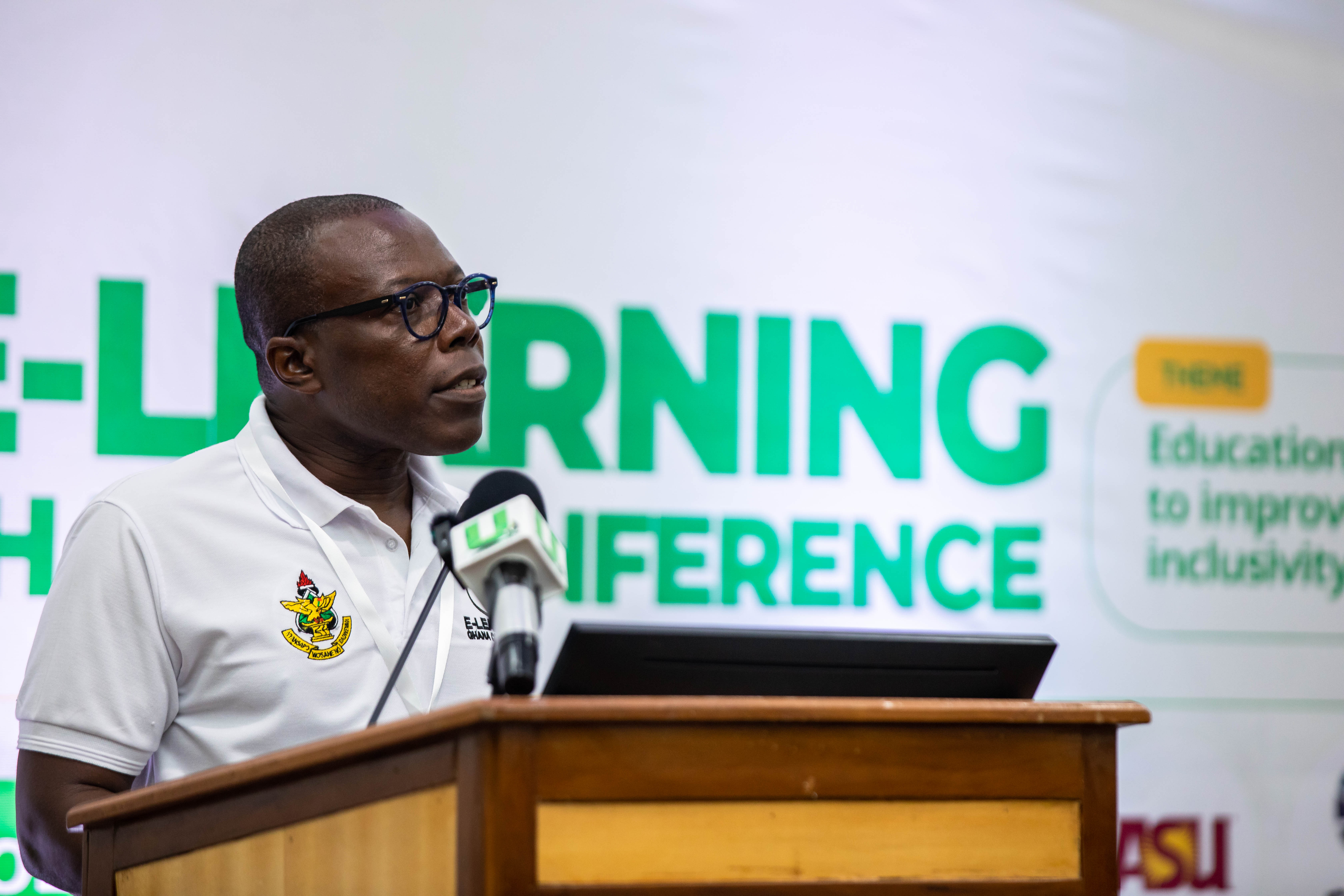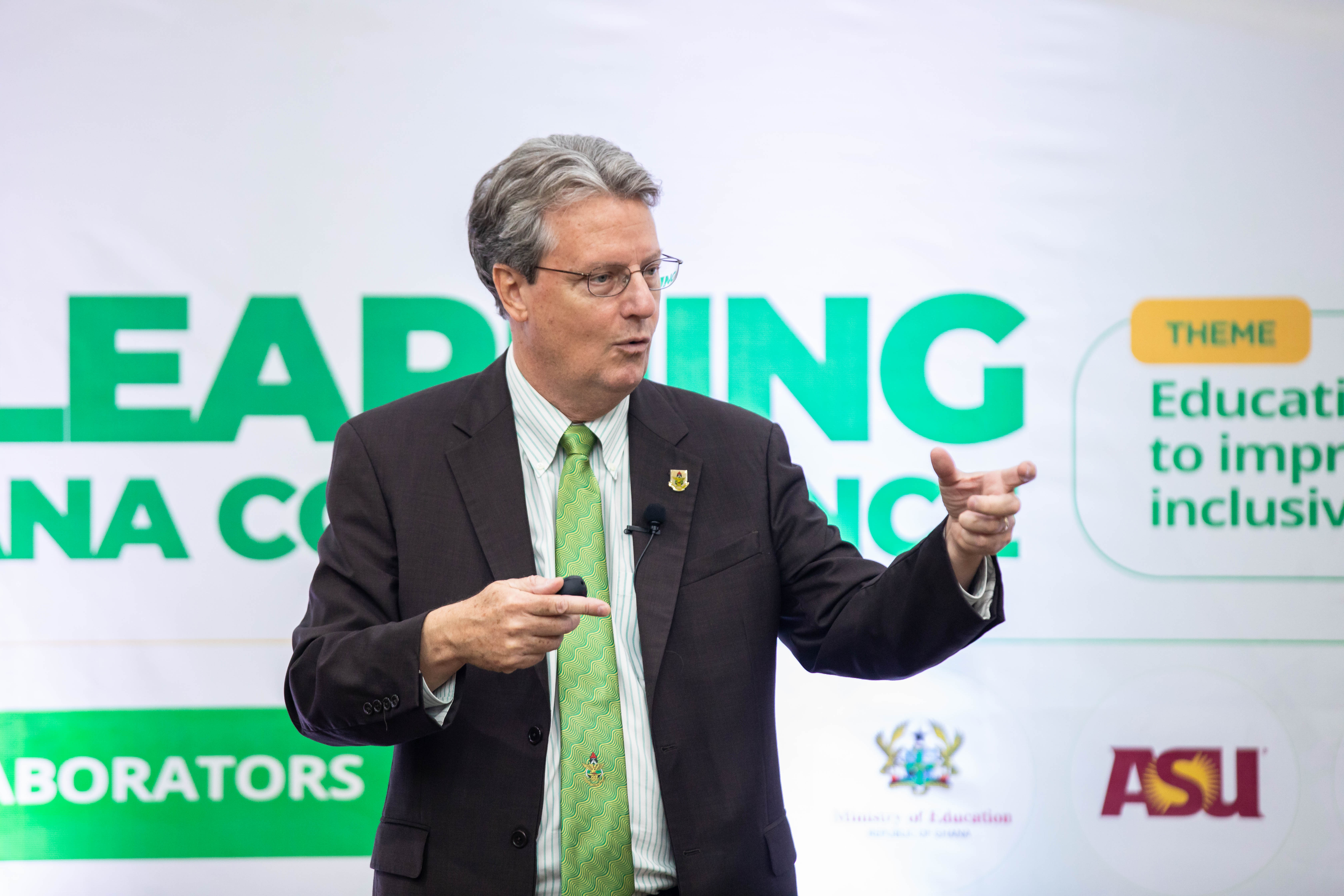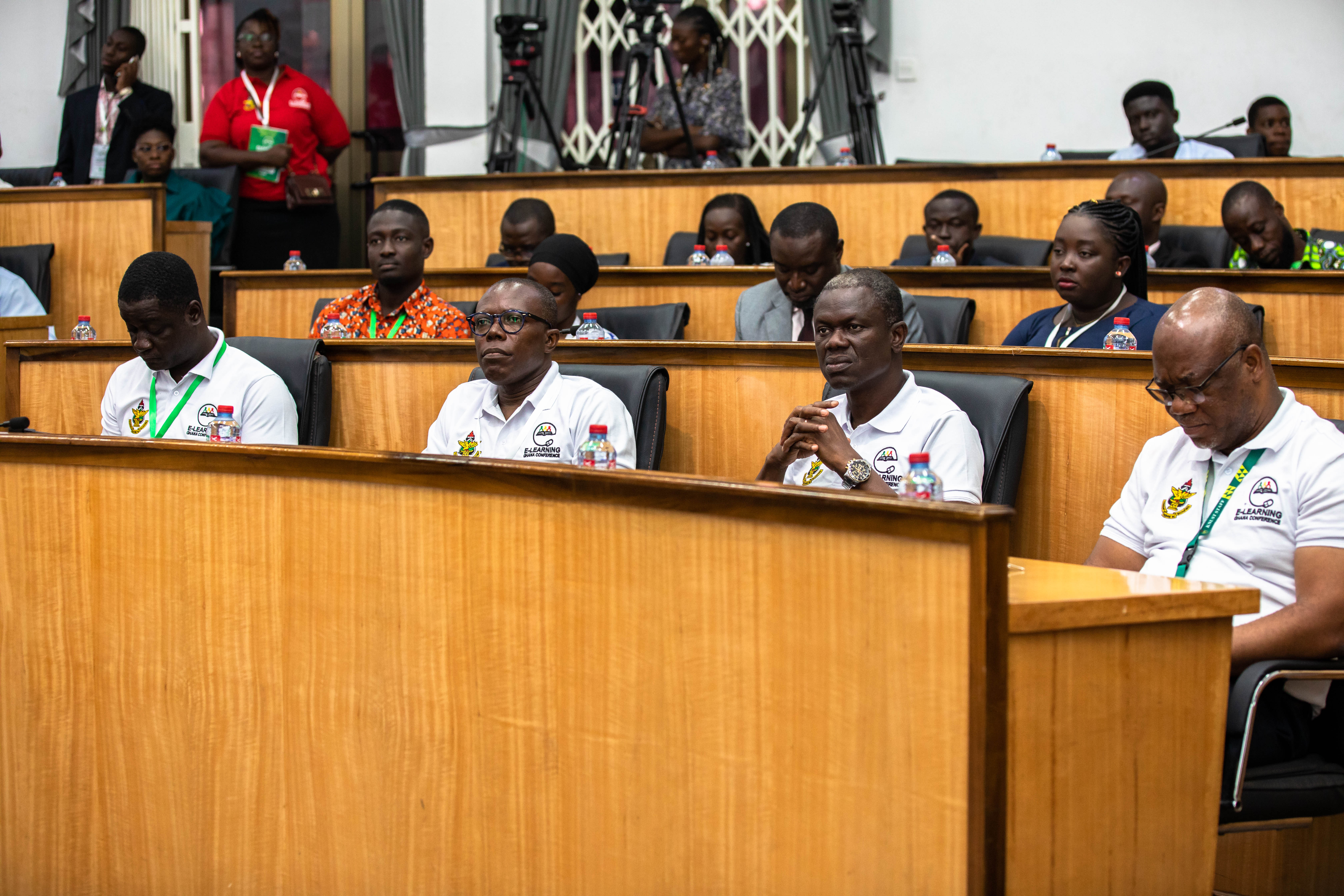KNUST Organizes the Maiden eLearning Ghana Conference

The Kwame Nkrumah University of Science and Technology through its E-Learning Centre envisioned a platform for educators, academics, administrators, and people within the e-learning ecosystem to dialogue and brainstorm on emerging issues in digital education. The conference seeks to create communities of practice among e-learning practitioners in the country. It will also afford practitioners the chance to translate all discussions and insights into tangible outcomes, actionable plans, and a renewed commitment to break down barriers that hinder access to education, enhance the quality of the learning experience, foster inclusivity and ensure the sustainability of efforts.

The maiden edition of the E-Learning Ghana Conference under the theme “Education without Borders; Digitalizing to improve Accessibility, Quality, Inclusivity and Sustainability” was thus launched at the Amonoo Neizer Conference Centre of the University. Prof. (Mrs.) Rita Akosua Dickson, in a welcome address delivered on her behalf by the Pro-Vice Chancellor was particularly delighted for the conference and the impact that it will have on higher education in Ghana.
She stated that; “as a country, we have evolved remarkably in the landscape of e-learning with many educational institutions adopting various e-learning tools and pedagogical techniques” thus “the conference, which has gathered an array of scholars, pioneers and thought leaders in the field promises to mediate our quest in achieving a student-centered, technology-mediated educational future.”

The keynote speaker for the launch, Prof. Dale Patrick Johnson, presented on the topic “Education without Borders: Digitalizing to Improve Accessibility, Quality, Inclusivity and Sustainability.” He took participants through some of the ways to build stronger and resilient e-learning systems. He challenged the University to maintain its enviable spot as the best in the world in SDG 4. He highlighted some of the many different functionalities that digitalizing our teaching and learning activities can offer us. He interlaced this with anecdotes from the Arizona State University, where is the Director of Digital Innovations.

The minister of communication and digitalization, Mrs. Ursula Owusu Akuful (MP), presented the governments side of affairs. She noted that; “the government of Ghana through the Ministry of Communication is committed to developing the country into a knowledge-based society and a smart economy through the use of ICT. The government recognizes e-learning as a catalyst for accessible, quality, inclusive and sustainable education.” She mentioned that “government has made significant investments in digital infrastructure and devices to ensure widespread access to technology in communities and schools across the country. Connectivity is the foundation on which all digital and technological initiatives including e-learning thrive. Thus, the government is committed to providing affordable and reliable internet to all citizens.”

The conference presentations were officially declared open by the Pro-Vice Chancellor. Presentations were done in breakout rooms under the subthemes of sustainability and inclusivity, accessibility, and quality. Speakers for the various subthemes presented their works in parallel sessions as poster presentations were also ongoing at the forecourt of the auditorium. After the parallel sessions, participants came back to the plenary to reflect on their learnings from the various sessions. Day two of the conference was opened with a presentation from the Director of the Centre for National Distance Learning and Open Schooling (CENDLOS), Mr. Gyamfi Nkrumah Adwabour. He emphasized the need for policy to be in sync with pedagogy and the people it is meant for in every e-learning initiative. He outlined his Centres efforts in promoting distance and e-learning in Ghana and pledged their commitment to assist institutions of higher learning like KNUST for the growth of the ecosystem.

Paper presentations for various subthemes continued again in two parallel sessions of “Quality and Sustainability” and “Accessibility and Inclusivity”. Plenary session followed after that to accord participants the chance to brainstorm on their key takeaways. Activities were climaxed with a panel discussion on the theme “Generative AI Language Models in Tertiary Education: Empowering Students’ Creativity or Undermining Academic Integrity?”. Participants were delighted to have witnessed such an insightful conference. They shared their experiences and learnings in the various parallel sessions as well as in the plenary. The panel discussion was particularly keenly debated as more people wished it had continued for long. The KNUST and its E-Learning Centre congratulates all speakers and participants and remains grateful to the organizing committee members for such a yeoman’s job.
The E-Learning Ghana Conference will continue to bring together all stakeholders in the sector annually to open dialogue, plan, and promote e-learning issues and activities in the country. These annual meetings will either be virtual, in person, or a blend of both with provision for the opportunity for international stakeholders to collaborate with Ghanaian counterparts such as the KNUST E-Learning Centre and other such institutions in the country. It will therefore become a place where Higher Educational Institutions or tertiary institutions converge to promote a common interest in the effective deployment of online teaching and learning.
Published:11th July 2023 Source: KNUST E-Learning Centre
